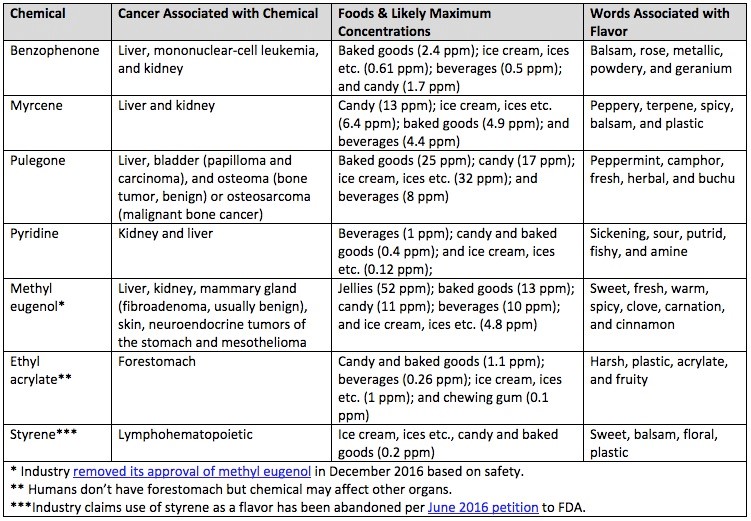As my family gears up for the holiday season, I am planning for lots of cooking and lots of storing and reheating of leftovers. Though I consider myself to be already very conscious about the products in my home, I know that new concerns are surfacing all the time and laws are always changing. Therefore, I look to BCPP to provide guidance on how to provide the healthiest cooking experience for my family and especially for my young daughters.
I often refer to the below tips on BCPP’s site:
1. Kick the can
Though many canned goods manufacturers have declared that they have removed BPA from their can linings, it is still unclear if the replacement chemicals are any better.
My family always aims for non-canned alternatives.
2. Get out of plastic
Plastics can leach harmful chemicals like BPA and phthalates into your food and beverages and then into you. BCPP reminds us to never, ever microwave plastic — even “microwave-safe” plastic can leach chemicals into food when heated.
To further evidence of this point, the American Academy of Pediatrics just issued guidance against the harmful effects of food packaging on children’s health.
3. Ditch Teflon pots and pans
Some toxic compounds are used in non-stick cookware. While they keep food and stains from sticking, they stick around in the environment and in the body for a very long time, and have been linked to cancer. BCPP suggests making the switch to cast iron, ceramic, anodized aluminum cookware, and glass bakeware. Prioritize replacing cookware used over high heat and pieces that are scratched.
If you are like me, the whole house can smell the fumes while you are cooking a good meal. Imagine what is in that air if the pan you are cooking in is toxic?
4. Go organic and eat chemical-free
Organic produce is grown without harmful pesticides and herbicides. When we eat meat and dairy products, we also eat the residue of what those animals ate. Choose hormone-free beef and dairy to eliminate your consumption of pesticides and growth hormones that may contribute to an increased risk of breast cancer.
5. Eat low on the food chain
Plant foods have far lower chemical levels compared to animal foods, such as meat and dairy, where fat-soluble chemicals tend to accumulate. A Mediterranean diet high in fresh fruits and vegetables, whole grains, and healthy fats (avocados, nuts, and seeds), with smaller amounts of animal foods, is a proven disease prevention tool.
6. Limit red meat and processed meat products
Recent research is showing increased evidence of a link between high red meat consumption around adolescence and later life breast cancer. Processed meat is also recognized as a carcinogen.
7. Avoid greasy or oily packaged and fast foods
Watch out for packaged foods that may contain harmful PFAS chemicals, a large family of chemicals that are linked to cancer, hormone disruption and reproductive harm and persistent in the environment. Avoid greasy or oily packaged and fast foods, as the packages often contain grease-repellent coatings. These include sandwich and burger wrappers, takeout containers, microwave popcorn bags, french fry boxes, pizza boxes, and dessert and bread wrappers, sandwich and burger wrappers, paperboard food packaging, take-out containers and microwave popcorn bags.
In my home, we teach the kids to eat lots of vegetables, and we try not to base every meal around meat. When we do end up cooking a lot of meat, especially around the holidays, we always aim for grass fed beef and organic poultry, locally produced if possible.
In terms of food, there are always lots of treats floating around during the holidays. A recent BCPP victory opened my eyes to the carcinogens in certain artificial food additives called ‘flavorings’ that you find in baked goods, candies, ice creams, and other holiday treats.
In 2016, BCPP signed a petition requesting the U.S. Food & Drug Administration (FDA) to withdraw approval for seven carcinogens that are used as flavorings in food. In May of this year, they joined an Earthjustice lawsuit to force FDA to respond to the petition, which was almost two years past the statutory deadline for action. In addition to BCPP as an organization signing on to the case, fellow board member Hendy submitted a formal declaration, providing the personal voice of a breast cancer survivor.
BCPP and Earthjustice WON the suit! The FDA just published a rule withdrawing approval for all 7 carcinogens, including such nasty chemicals as styrene. Here is the list of all 7:
-
- Benzophenone
- Ethyl acrylate
- Eugenyl methyl
- Myrcene
- Pulegone
- Pyridine
- Styrene
However, the government will not enforce this rule until October of 2020. So, for this holiday season, do not assume these flavors have been removed! Try to avoid packaged treats and baked goods with the word ‘flavors’ on the ingredient list.
Here are some examples of where you will find these flavors:
Wishing you a happy and healthy holiday season.
Suzanne Price is a board member of BCPP and the founder of Sprout San Francisco (www.sproutsanfrancisco.com), a chain of children’s boutiques selling products that are natural, organic, and free of toxic chemicals.


